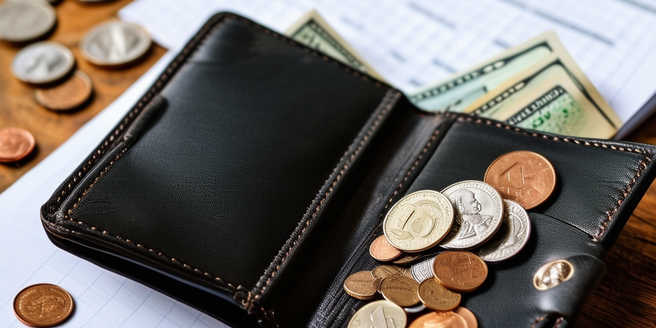Monthly Budget Planning For New Homeowners

Understanding Your Income and Expenses
To create an effective budget, start by understanding your income and expenses. This involves evaluating your monthly net income after taxes and any deductions. Then, list all fixed expenses like mortgage, utilities, and insurance, as well as variable expenses such as groceries, entertainment, and dining out. Keep track of your spending habits for a month to identify areas where you can cut back if needed. Having a clear picture of both income and expenses helps you make informed decisions. Consider any additional sources of income like side gigs or investments. Understanding your cash flow is the foundation of successful budgeting. Ensure that your spending aligns with your financial goals and adjust as necessary to maintain a balanced budget that supports your new lifestyle.
Setting Realistic Budget Goals
When setting budget goals, it’s critical to ensure they’re both realistic and attainable. Start by prioritizing needs over wants and distinguish between them. Analyze your spending history to identify patterns and adjust your goals accordingly. Determine specific, measurable, achievable, relevant, and time-bound (SMART) goals for your financial planning. It’s important not to be overly restrictive as this can lead to frustration and deviation from the plan. Allocate funds for both short-term and long-term goals, such as saving for a vacation or building an emergency fund. By setting realistic goals, you create a roadmap that encourages disciplined spending while allowing you to enjoy life’s essentials and pleasures. Remember, flexibility in your budget can help you adapt to life’s unpredictable changes while staying on track with your goals.
Creating a Detailed Spending Plan
A detailed spending plan is crucial for successful budget management. Begin by categorizing your expenses, such as housing, transportation, groceries, entertainment, and savings. Assign specific amounts to each category based on past spending and future expectations. Factor in irregular expenses like annual subscriptions or quarterly insurance payments. Use budgeting tools or apps to track expenses daily, which helps maintain accountability. Regularly review your spending plan to ensure it aligns with your financial goals and adjust it as life circumstances change. Efficiently managing both fixed and variable costs can prevent overspending and ensure you have sufficient funds allocated for unexpected events. By clearly outlining your spending priorities, you can make informed decisions that help maintain financial stability and support your goals as a new homeowner.
Incorporating Savings and Emergency Funds
Incorporating savings and building an emergency fund are crucial steps in budget planning. Prioritize setting aside a percentage of your income each month for savings. Target to build an emergency fund that covers at least three to six months of living expenses to protect against unforeseen financial challenges like medical emergencies or job loss. Consider automating transfers to savings accounts directly following your paycheck deposit—this ensures consistent saving habits. Explore high-yield savings accounts for better returns. In addition, set short and long-term savings goals to stay motivated. Having a robust savings plan not only secures your financial future but also brings peace of mind, reducing anxiety related to economic uncertainties. Ensure that your budget reflects regular contributions to savings and emergency funds to maintain a strong financial cushion.
Tracking and Adjusting Your Budget
Tracking your budget is an ongoing task that requires diligence and flexibility. Regularly update and review your budget, comparing actual expenses to your planned amounts. Identify variances and pinpoint areas where you may overspend. Use budgeting apps or spreadsheets to streamline this process, setting alerts for bill payments and yearly renewals. Being proactive with your budget adjustments ensures it remains relevant to your current financial situation, especially when life events such as job changes or unforeseen expenses occur. Adjustments might include reallocating funds from one category to another or increasing savings contributions. Consistently tracking your budget helps cultivate mindful spending habits, enabling you to remain in control of your finances. Always be prepared to pivot and revise your budget strategy to better meet financial goals and circumstances.
Tips for Sticking to Your Budget
Sticking to a budget requires commitment and a proactive approach. Begin by setting realistic budgets with room for unexpected expenses, avoiding the pitfalls of being overly stringent. Regularly review your spending and adjust categories as needed. Consider using cash for discretionary spending to limit spending beyond your means. Establish clear financial goals and remind yourself of these to maintain motivation. Be mindful of external pressures, such as peer influence on spending, which can derail your budget. Celebrate small victories to keep morale high—achieving small goals contributes to the bigger picture. Utilize budgeting tools for tracking to simplify the process and promote accountability. Sticking to your budget is achievable with discipline, regular assessment, and the willingness to adapt to changing financial circumstances.